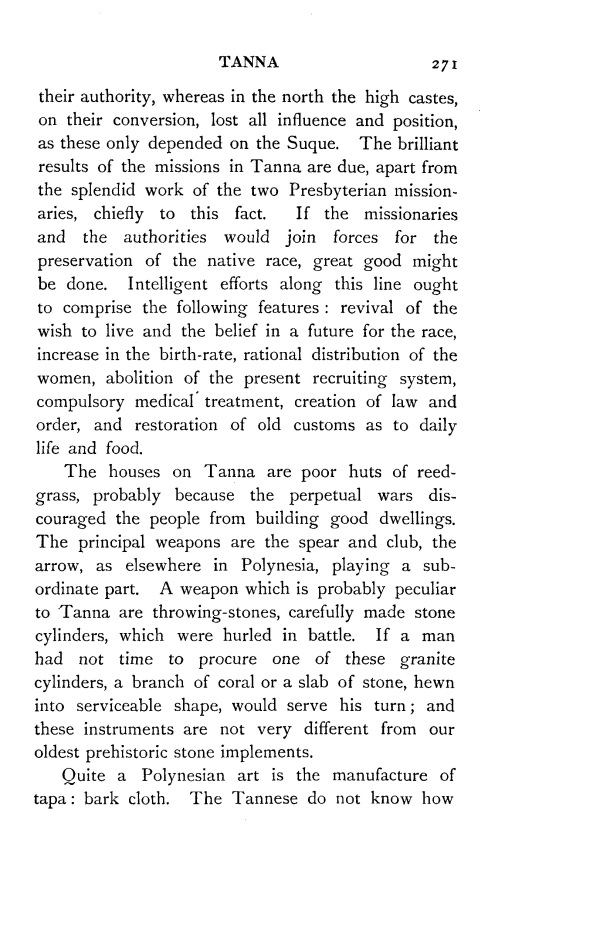|
|  [Note: this transcription was produced by an automatic OCR engine]
TANNA 27 I
their authority, Whereas in the north the high castes,
on their conversion, lost all influence and position,
as these only depended on the Suque. The brilliant
results of the missions in Tanna are due, apart from
the splendid work of the two Presbyterian mission-
aries, chiefly to this fact. If the missionaries
and the authorities would join forces for the
preservation of the native race, great good might
be done. Intelligent efforts along this line ought
to comprise the following features: revival of the
wish to live and the belief in a future for the race,
increase in the birth—rate, rational distribution of the
women, abolition of the present recruiting system,
compulsory medical’ treatment, creation of law and
order, and restoration of old customs as to daily
life and food.
The houses on Tanna are poor huts of reed-
grass, probably because the perpetual wars dis-
couraged the people from building good dwellings.
The principal weapons are the spear and club, the
arrow, as elsewhere in Polynesia, playing a sub
ordinate part. A weapon which is probably peculiar
to ‘Tanna are throwing-stones, carefully made stone
cylinders, which were hurled in battle. If a man
had not time to procure one of these granite
cylinders, a branch of coral or a slab of stone, hewn
into serviceable shape, would serve his turn; and
these instruments are not very different from our
oldest prehistoric stone implements.
Quite a Polynesian art is the manufacture of
tapa: bark cloth. The Tannese do not know how
|